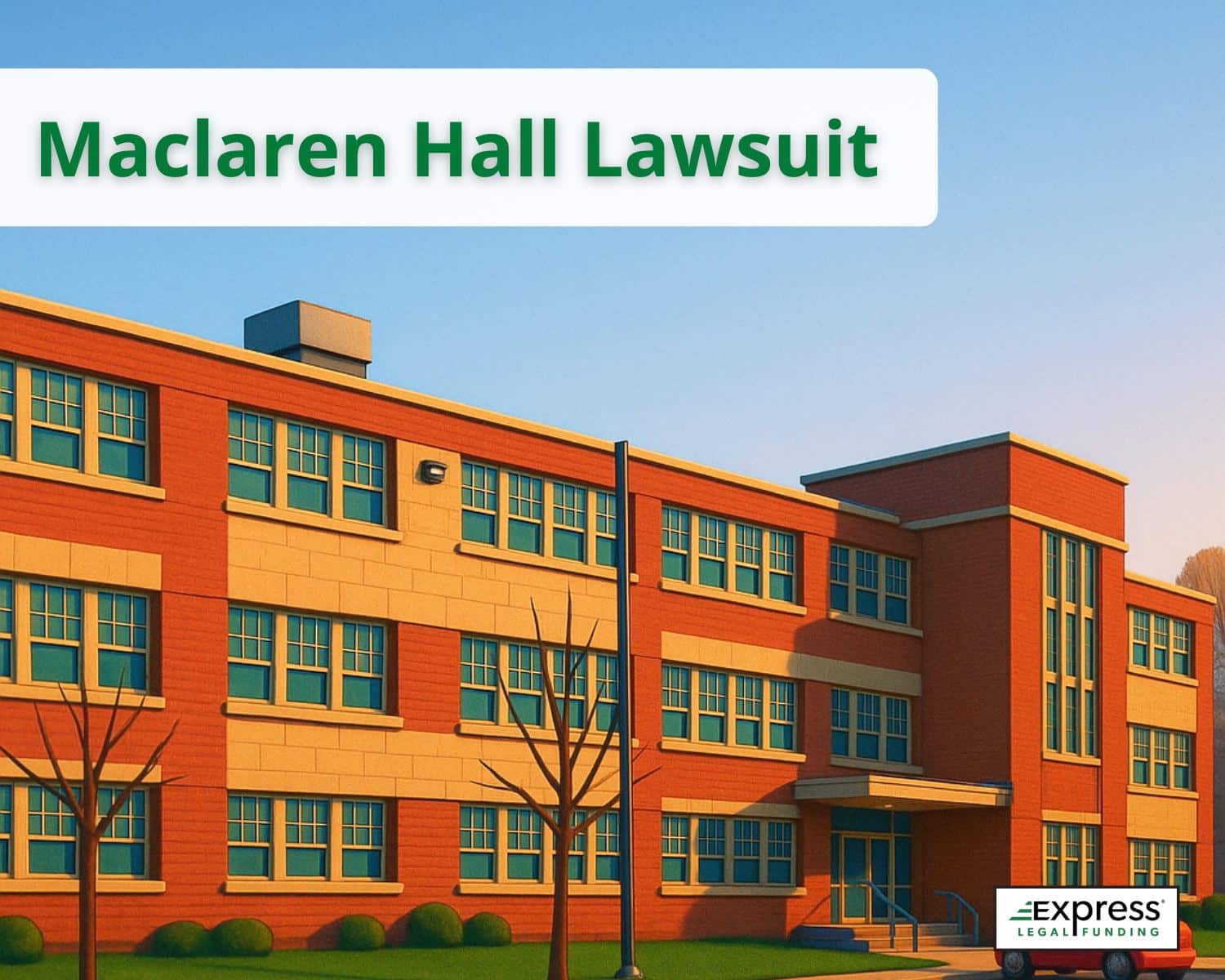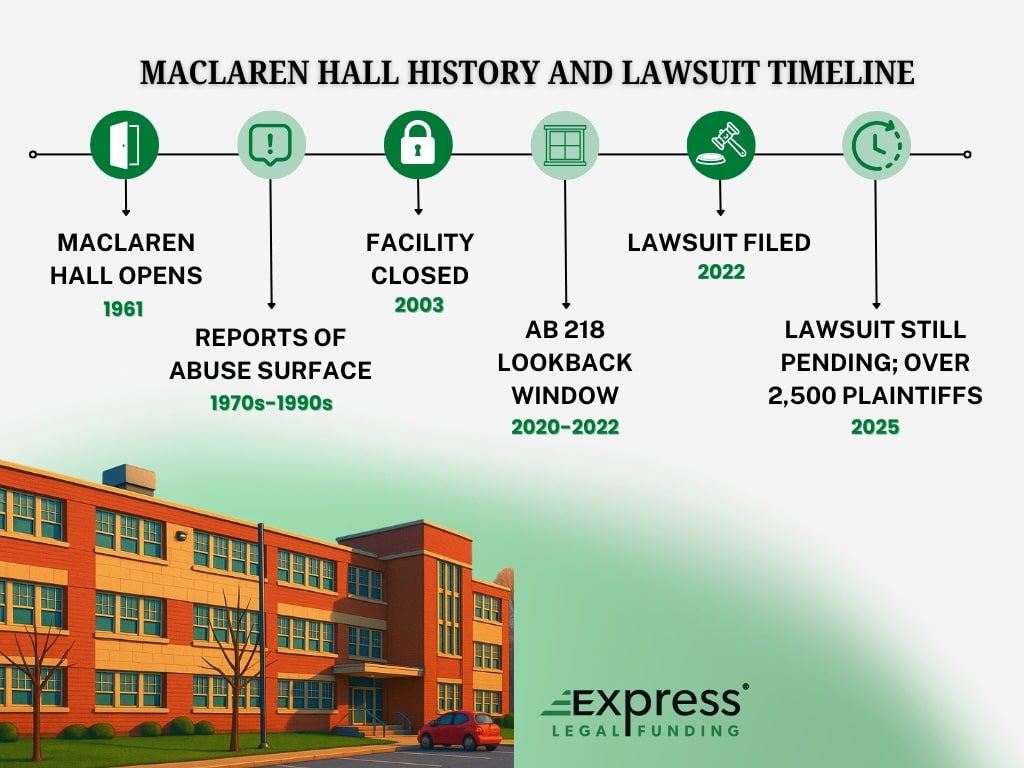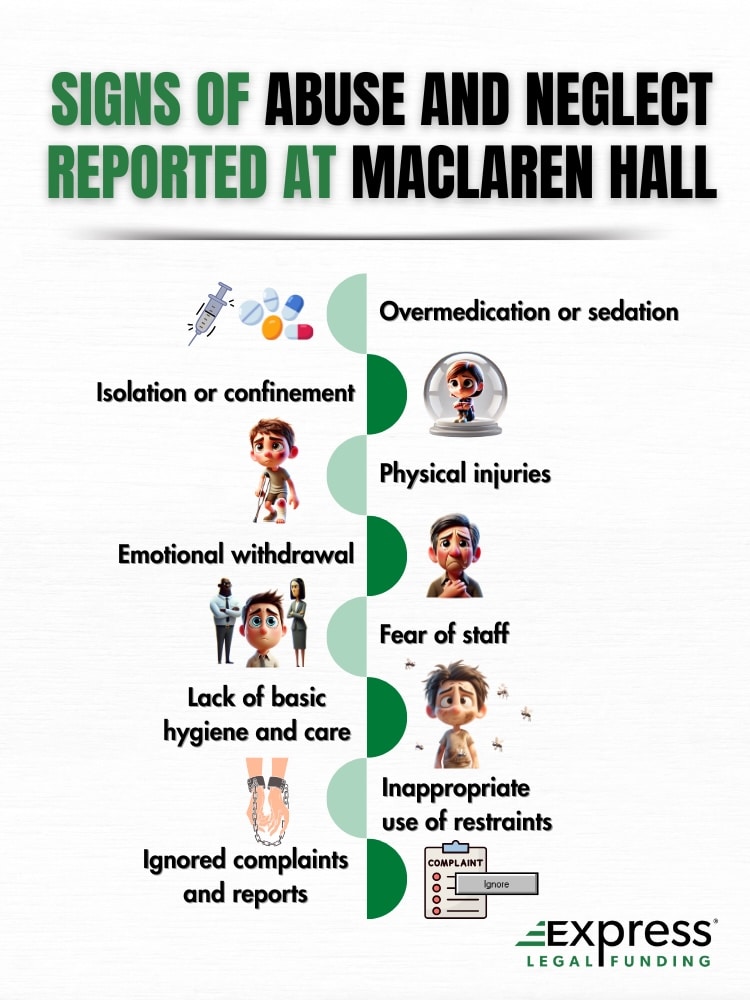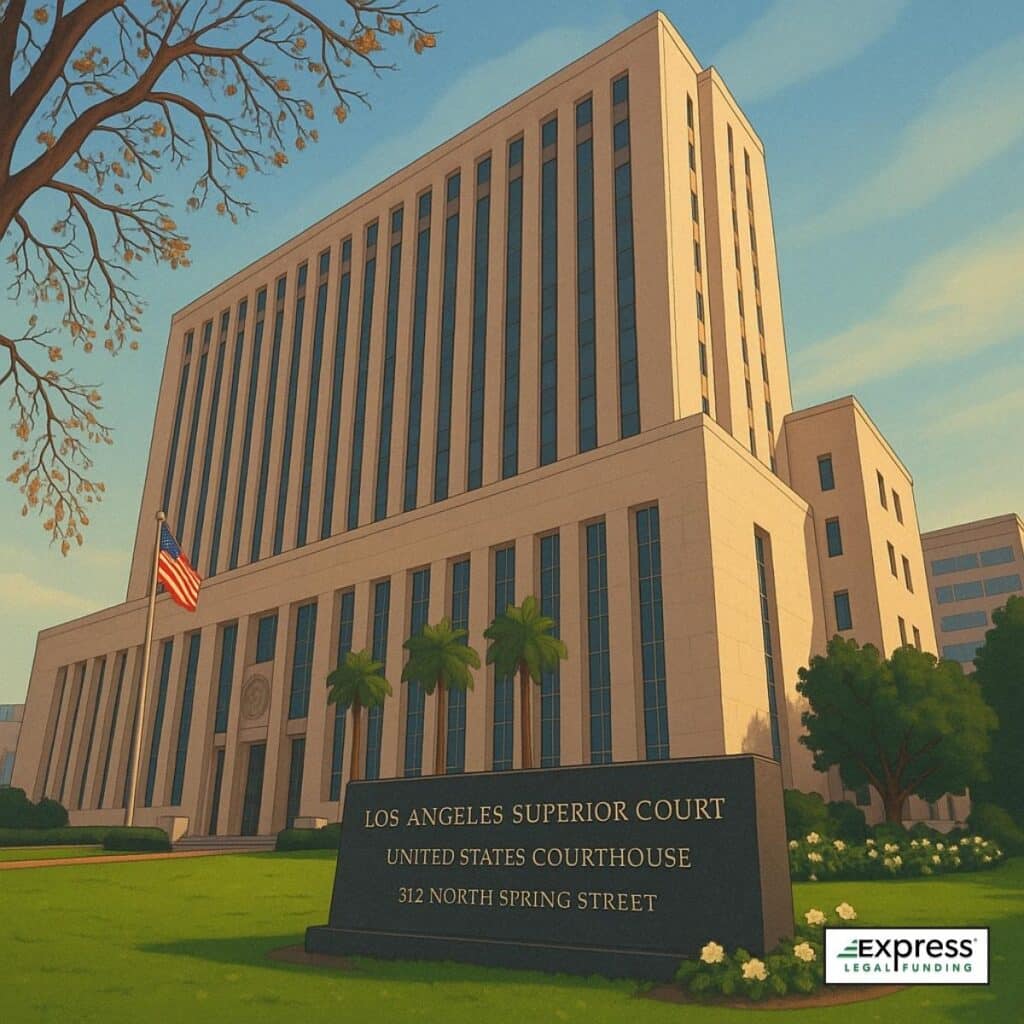
The Maclaren Hall lawsuit represents a significant chapter in the ongoing struggle for justice and accountability within institutional care systems.
At the heart of this legal battle is a proposed $4 billion settlement, a staggering figure that underscores the gravity of the allegations and the scale of the harm suffered by countless individuals.
What Is Maclaren Hall?
Maclaren Hall, once a prominent child care facility in Los Angeles County, has become synonymous with claims of systemic abuse and neglect. Operating from 1961 to 2003, it served as a temporary shelter for children removed from their homes due to abuse, neglect, or other crises.
However, instead of providing a safe haven, the facility became notorious for allegations of systemic neglect, mistreatment, and widespread abuse. Former residents have since come forward with claims of physical, emotional, and sexual abuse, prompting multiple lawsuits against the county.
Maclaren Hall Abuse Lawsuit
The Maclaren Hall abuse survivor lawsuit not only seeks to provide financial restitution to the victims but also aims to shed light on the broader issues of institutional abuse and the failures of systems meant to protect vulnerable populations.
As the legal proceedings unfold, they offer a critical opportunity to examine past mistakes and implement reforms to prevent future injustices, ensuring that the voices of those who suffered are heard and that meaningful change is enacted.

Maclaren Hall History and Lawsuit Timeline
- 1961: Maclaren Hall opens
- 1970s–1990s: Reports of abuse surface
- 2003: Facility closed
- 2020–2022: AB 218 lookback window
- 2022: Initial lawsuit filed
- 2025: Lawsuit still pending; over 2,500 plaintiffs with proposed $4 billion settlement
Background of Maclaren Hall: The Troubled History of a Los Angeles Child Welfare Institution
Origins and Intended Purpose of Maclaren Hall
To fully grasp the implications of the Maclaren Hall lawsuit, it is essential to delve into the background of this long-time notorious institution.
Opened in 1961, Maclaren Hall was a Los Angeles County–run facility located at 4024 Durfee Avenue in El Monte, California, operated by the Department of Children and Family Services (DCFS). View on Google Maps
It was originally intended to serve as a temporary refuge for children in crisis, providing short-term shelter and care for those who had been abused, neglected, or abandoned while in county custody and awaiting more permanent placements.
At its peak, Maclaren Hall housed thousands of children each year, becoming one of the largest emergency child welfare centers in California.
What Life Was Like Inside Maclaren Hall: Daily Conditions and Survivor Accounts
Over the decades, the facility became the focus of growing controversy, with reports of physical abuse, sexual asalto, and systemic neglect spanning generations.
Despite its mission to protect vulnerable youth, survivors have come forward describing Maclaren Hall as a place of trauma rather than safety. Amid mounting public scrutiny and legal pressure, the county ultimately shut down the facility in 2003.
Overcrowding, inadequate staffing, and a lack of proper oversight contributed to an atmosphere where abuse and neglect could flourish unchecked. The facility’s stark, institutional setting, with its barred windows and locked doors, only exacerbated the trauma experienced by its young residents.
Institutional Failures and How Maclaren Hall Was Ultimately Shut Down

As early as the 1970s, stories of mistreatment at Maclaren Hall began to emerge, hinting at a troubling environment behind its walls.
Over the following decades, accounts from former residents painted a grim picture of life inside the facility, where children were subjected to harsh discipline, forced isolation, overmedication, and, in many cases, physical and sexual abuse.
While many early warnings were overlooked or minimized, public scrutiny intensified in the 1990s and early 2000s, ultimately contributing to the facility’s closure in 2003.
This long and painful history set the stage for a major legal reckoning.
Under California’s AB 218 law, which temporarily lifted the prescripción for childhood sexual abuse claims, survivors were granted a special lookback window from 2020 to 2022 to file lawsuits, regardless of how long ago the abuse occurred.
This legislation acknowledged that many survivors are not ready or able to come forward until well into adulthood. As a result, waves of former Maclaren Hall residents, now adults, seized the opportunity to pursue long-overdue justice and accountability through the courts.
Understanding this background is essential to grasping the profound impact of the Maclaren Hall lawsuit and the urgent need for systemic reform in the child welfare system.
Statutory Citation: California Assembly Bill 218 (AB 218), codified at California Code of Civil Procedure §§ 340.1.
Maclaren Hall Lawsuit Allegations and Survivor Testimonies
Key Abuse Claims Made by Former Residents
The lawsuit against Maclaren Hall is a landmark case that encapsulates the deep-seated issues of institutional abuse and the quest for justice by those who suffered within its walls.
Filed by a group of over 2,500 former residents, the lawsuit alleges a wide range of abuses, including physical, emotional, and sexual mistreatment, which were reportedly rampant during the facility’s operation.
Harrowing Survivor Stories from Inside Maclaren Hall
The plaintiffs, all of whom are now adults, have come forward with harrowing accounts of their experiences, detailing how the very institution meant to protect them became a source of profound trauma.

Central to the lawsuit is the reclamar that Los Angeles County, which operated Maclaren Hall, failed in its duty to provide a safe environment for the children in its care.
The legal proceedings have brought to light systemic failures, such as inadequate training for staff, insufficient oversight, and a culture of silence that allowed abuse to persist unchecked.
The $4 billion settlement sought by the plaintiffs is not only a demand for financial compensation but also a call for acknowledgment of the wrongs committed and a catalyst for change.
As the case unfolds, it serves as a powerful reminder of the need for vigilance and reform in child welfare systems, ensuring that such tragedies are not repeated.
Legal Proceedings and Implications of the Maclaren Hall Abuse Lawsuit
Legal Responsibilities of Los Angeles County and Public Institutions
The legal implications of the Maclaren Hall lawsuit are profound. They extend beyond the immediate claims to challenge broader systemic issues within institutional care.
As the proceedings advance, they highlight critical questions about accountability, oversight, and the legal responsibilities of entities tasked with child welfare.

Gaps in Oversight and the Call for Child Welfare Reform
The case has prompted intense scrutiny of Los Angeles County’s practices, with legal experts and advocates examining how such widespread abuse could occur under its watch.
This scrutiny has led to discussions about the adequacy of existing laws and regulations governing child care facilities, emphasizing the need for more stringent safeguards and transparent oversight mechanisms.
How the Maclaren Hall Lawsuit Sets a Legal Precedent
The lawsuit also sets a precedente for similar cases, potentially influencing how future claims of institutional abuse are handled and adjudicated.
As the plaintiffs seek justice, the legal proceedings have become a platform for broader advocacy, pushing for legislative reforms that prioritize the protection and rights of vulnerable children.
The tentative $4 billion settlement underscores the financial and moral weight of the claims, serving as a stark reminder of the consequences of neglect and abuse.
Ultimately, the legal journey of this case is not just about restitution for past wrongs but also about forging a path toward a more accountable and compassionate system that truly safeguards those it is meant to serve.
Maclaren Hall Lawsuit: What the $4 Billion Settlement Means for Abuse Survivors
Financial Compensation and Recognition of Harm
En proposed $4 billion settlement in the Maclaren Hall and other LA County juvenile hall lawsuits is a monumental figure that reflects the severity and scale of the alleged abuses suffered by the facility’s former residents.
Ongoing Support Needs for Maclaren Hall Survivors
This substantial sum is intended not only to provide financial compensation to the victims but also to serve as a powerful acknowledgment of the systemic failures that allowed such mistreatment to occur.
The settlement aims to address the long-lasting impact of the trauma endured by the children, many of whom have carried the scars of their experiences into adulthood.
How the Settlement Could Drive Institutional Reform
Beyond monetary restitution, the settlement is poised to catalyze significant changes within institutional care systems, prompting a reevaluation of policies and practices to prevent future abuses. It sends a clear message to child welfare institutions nationwide about the importance of accountability and the dire consequences of neglecting their duty of care.
As negotiations continue, the settlement discussions have also sparked broader conversations about the need for comprehensive support services for survivors, including mental health resources and community programs designed to aid in their recovery.
Ultimately, a $4 billion settlement is not just a financial resolution; it is a call to action for systemic reform, ensuring that the lessons learned from Maclaren Hall lead to a safer and more compassionate environment for all children in institutional care.
The Lasting Impact on Survivors and Community Calls for Reform
The impact of the Maclaren Hall lawsuit and its proposed $4 billion settlement extends far beyond the courtroom, deeply affecting both the survivors and the broader community.
For the survivors, the settlement represents a crucial step toward healing and validation, acknowledging the dolor y sufrimiento they endured while under the care of an institution that failed them.
Many survivors have long struggled with the psychological and emotional aftermath of their experiences, and the settlement offers not only financial compensation but also a sense of justice and recognition of their trauma.

This acknowledgment is vital for their healing journey, as it validates their experiences and provides resources that can be used for therapy, education, and rebuilding their lives.
How the Lawsuit Sparked Grassroots and National Advocacy
In the community, the lawsuit has sparked a broader dialogue about the responsibilities of child welfare systems and the importance of safeguarding vulnerable populations. It has galvanized local and national advocacy groups to push for reforms that ensure greater transparency, accountability, and oversight in institutional care settings.
The case has also heightened public awareness about the potential for abuse within such facilities, prompting community members to demand better protections and support for at-risk children.
As a result, the Maclaren Hall lawsuit has become a catalyst for change, inspiring efforts to create a more just and compassionate system that prioritizes the well-being and rights of every child.
Through these collective efforts, the community aims to transform the lessons learned from this tragedy into meaningful action, ensuring that the mistakes of the past are not repeated.
Institutional Abuse and the Push for Systemic Reform in Child Welfare
The Maclaren Hall lawsuit has illuminated the pervasive issue of institutional abuse, prompting urgent calls for systemic reforms within child welfare systems.
This case has underscored the critical need for comprehensive changes that address the root causes of abuse and neglect in institutional settings.
Key areas for reform include enhancing oversight mechanisms, improving staff training, and implementing rigorous accountability measures to ensure that facilities are safe and nurturing environments for children.
Advocacy groups and policymakers are now focusing on developing policies that prioritize the rights and well-being of children, emphasizing the importance of trauma-informed care and support services tailored to the unique needs of each child.
Community Awareness and the Push for Oversight in Institutional Care
Moreover, the lawsuit has highlighted the necessity of creating a culture of transparency within these institutions, where whistleblowers are protected and encouraged to report any signs of abuse without fear of retaliation.
By fostering open communication and collaboration among stakeholders, including government agencies, non-profit organizations, and community members, the goal is to build a robust network of support that can effectively monitor and improve the quality of care provided to vulnerable children.
As these reforms take shape, they offer hope for a future where institutional abuse is not only addressed but actively prevented, ensuring that every child receives the protection and care they deserve.
The Maclaren Hall case serves as a poignant reminder of the urgent need for systemic change, driving efforts to create a more compassionate and accountable child welfare system that truly safeguards the rights and dignity of all children.
How to Get Involved or Seek Help If You or Someone You Know Was Affected by Maclaren Hall
For those moved by the Maclaren Hall case and eager to contribute to the fight against institutional abuse, there are several ways to get involved or seek help.
Support Advocacy Groups Fighting Institutional Abuse
Individuals can contribute to change by supporting advocacy groups dedicated to child welfare reform, such as the Children’s Advocacy Institute (CAI), which works to improve the lives of abused and neglected children through research, legislative advocacy, and public education.
This support can take many forms, from volunteering time and donating resources to participating in awareness campaigns that highlight the dangers of institutional abuse.
Organizations like CAI play a vital role in pushing for policy reform, providing critical support to survivors, and educating the public about the need to protect vulnerable children.
By engaging with both local and national advocacy efforts, people can help amplify the call for systemic reform, ensuring that the painful lessons of Maclaren Hall lead to lasting, meaningful change.
Resources and Mental Health Support for Survivors
For survivors of institutional abuse, seeking help can be an important step toward healing, and there are many resources available to provide support and guidance.
Connecting with mental health professionals who specialize in trauma-informed care can be especially beneficial, offering survivors a safe space to process their experiences and begin recovery.
In addition, joining survivor networks or peer support groups can foster a sense of community, validation, and empowerment. Sharing your story with others who’ve faced similar challenges can be deeply healing and remind survivors that they are not alone.
Helpful Resources:
- RAINN (Rape, Abuse & Incest National Network) – National Sexual Assault Hotline
Confidential 24/7 support for survivors of sexual abuse: 1-800-656-HOPE (4673) - The National Child Traumatic Stress Network (NCTSN)
Offers educational materials, trauma-informed care resources, and support options for survivors and professionals. - California Victim Compensation Board (CalVCB)
Provides financial assistance for survivors of violent crime in California, including therapy costs, relocation, and medical expenses. Call 1-800-777-9229.
Legal Aid and Justice Pathways for Abuse Victims
Legal aid organizations can also offer valuable support to survivors seeking justice or trying to navigate the complexities of the legal system. However, it’s important to note that the window to file lawsuits related to Maclaren Hall—made possible by California’s AB 218 law—closed on December 31, 2022.
While some legal options may still exist under special circumstances, for many survivors, the time to file may have passed. Consulting with an attorney or legal aid group can help clarify whether any late claims or alternative legal remedies are available.
Los Angeles, California Legal Aid Organizations:
- Public Counsel – The nation’s largest pro bono law firm, offering free legal services to underserved communities in Los Angeles, including victims of abuse and foster youth.
- Bet Tzedek Legal Services – Provides free legal assistance in civil matters, with a focus on elder justice, housing, and vulnerable populations.
- Legal Aid Foundation of Los Angeles (LAFLA) – Offers free legal help to low-income individuals in areas such as family law, housing, and government benefits.
Ultimately, whether through advocacy, survivor support, or personal healing, getting involved in the movement to end institutional abuse is a powerful way to help build a safer and more compassionate future for all children.
By taking action, however small, individuals can honor the painful lessons of the past and help ensure that every child receives the protection, dignity, and care they deserve.
How Media Coverage and Public Outcry Shaped the Maclaren Hall Lawsuit
The Maclaren Hall lawsuit has captured significant media attention, sparking widespread public response and dialogue about institutional abuse and the urgent need for systemic reform.
News Outlets Spotlight Harrowing Testimonies and the $4B Settlement
News outlets have extensively covered the case since its filing in 2022, highlighting the harrowing testimonies of survivors and the staggering $4 billion settlement, which has served as a catalyst for broader discussions on child welfare.
This media coverage has played a crucial role in bringing the issue to the forefront of public consciousness, prompting individuals and communities to reflect on the responsibilities of institutions tasked with caring for vulnerable populations.
Public response has been marked by a mix of outrage, empathy, and a renewed commitment to advocacy. Many people have expressed shock and anger at the revelations of abuse, while others have been moved to action, joining efforts to support survivors and push for legislative changes.
Social Media Advocacy and the Push for Legislative Action
Social media platforms have become vibrant spaces for sharing information, raising awareness, and mobilizing support, allowing for a more inclusive and dynamic conversation about the need for reform.
The heightened visibility of the Maclaren Hall case has also encouraged policymakers to prioritize child welfare issues, leading to increased scrutiny of existing systems and a push for more robust protections.
As the public continues to engage with the story, the hope is that this collective awareness and advocacy will drive meaningful change, ensuring that institutions are held accountable and that every child receives the care and protection they deserve.
Through sustained media coverage and public involvement, the Maclaren Hall lawsuit has become a powerful force for change, inspiring efforts to create a safer and more compassionate future for all children.
Maclaren Hall Lawsuit: Frequently Asked Questions (FAQ)
As the Maclaren Hall lawsuit continues to unfold, many people have questions about the case, its implications, and how they can contribute to the ongoing efforts for reform. Here are some frequently asked questions (FAQ) that address these concerns:
What is the Maclaren Hall lawsuit about?
The lawsuit involves allegations of systemic abuse and neglect at Maclaren Hall, a former child care facility in Los Angeles County. It seeks justice and compensation for the survivors who endured physical, emotional, and sexual abuse while in the institution’s care.
Why is the settlement amount so high?
The proposed $4 billion settlement reflects the severity and scale of the alleged abuses, aiming to provide financial restitution to the victims and acknowledge the systemic failures that allowed such mistreatment to occur.
Are there other juvenile facility sex abuse lawsuits in Los Angeles County besides Maclaren Hall?
Yes, there are many other sexual abuse lawsuits in Los Angeles County involving facilities beyond Maclaren Hall. While Maclaren Hall has been one of the most high-profile centers associated with decades of abuse, it is far from the only location where young people were harmed.
Thousands of survivors have come forward to report similar abuse that occurred in other county-run juvenile halls, foster care placements, and probation camps.
Facilities frequently named in lawsuits include:
- Los Padrinos Juvenile Hall
- Barry J. Nidorf Juvenile Hall
- Central Juvenile Hall
- Various probation camps such as Camp Scott, Camp Kilpatrick, and Camp Rockey.
How can I support the survivors of Maclaren Hall?
Individuals can support survivors by donating to or volunteering with advocacy groups focused on child welfare reform. These organizations work to provide resources, support services, and push for policy changes to prevent future abuses.
What changes are being proposed to prevent future institutional abuse like that in Maclaren Hall?
Reforms include enhancing oversight mechanisms, improving staff training, and implementing accountability measures to ensure safe and nurturing environments for children in care.
How can I stay informed about the Maclaren Hall case and related issues?
Following reputable news sources, engaging with advocacy groups on social media, and participating in community discussions can help you stay updated on the case and broader child welfare issues.
Final Thoughts on Maclaren Hall: Justice, Accountability, and Building a Safer Future for Children
In conclusion, the Maclaren Hall lawsuit serves as a poignant reminder of the urgent need for vigilance, reform, and compassion within institutional care systems. The staggering $4 billion settlement underscores the profound impact of the alleged abuses and the necessity for justice and accountability.
As the case continues to unfold, it has sparked vital conversations about the responsibilities of child welfare institutions and the importance of safeguarding vulnerable populations.
The collective response from survivors, advocates, policymakers, and the public has been instrumental in driving efforts toward systemic change, ensuring that the lessons learned from Maclaren Hall lead to meaningful reforms.
By fostering transparency, enhancing oversight, and prioritizing the rights and well-being of children, we can work towards a future where institutional abuse is not only addressed but actively prevented.
The Maclaren Hall case has galvanized a movement dedicated to creating a safer, more compassionate environment for all children, reminding us that every child deserves protection, care, and dignity.
As we continue to engage with this issue, let us remain committed to advocating for those who have suffered and to building a child welfare system that truly serves its intended purpose.
Through sustained efforts and informed public engagement, we can ensure that the tragic experiences of the past are not repeated, paving the way for a brighter future for all children in institutional care.
Pre-Settlement Legal Funding for Maclaren Hall Survivors
If you’re a survivor involved in the Maclaren Hall lawsuit and struggling financially as your case moves through the legal system, Express Legal Funding may be able to help.
We understand that healing takes time, and justice doesn’t always come quickly.
That’s why we provide financiación garantizada previa a la liquidación, often referred to as préstamos judiciales, to qualified plaintiffs, offering financial relief to cover essential living expenses while your lawsuit is pending.
Unlike traditional loans, our anticipos en efectivo are non-recourse, meaning you only repay if your case successfully resolves. There are no upfront fees, no credit checks, and no hidden costs—just the support you need when you need it most.
Apply Today for a Maclaren Hall Lawsuit Loan While You Wait for Justice
If you’re a Maclaren Hall survivor with a pending legal claim, you may qualify for pre-settlement funding.
- Fast case review by trauma-informed staff
- Funding in as little as 24 hours after approval
- No risk to you—repay only if you win
👉 Apply now o llame al Express Legal Funding at (888) 232-9223 to learn more and speak with a compassionate case specialist today. Kindly fill out the form below as completely as possible to facilitate the approval process.
Glosario de términos clave de este artículo
Below are definitions of key terms used throughout this article to help clarify important legal and institutional concepts related to the Maclaren Hall case.
- Institutional Abuse: Abuse that occurs within residential facilities or institutions, such as child care facilities, foster homes, or group homes. It includes physical, emotional, and sexual abuse, as well as neglect, often perpetrated by staff or other residents.
- Systemic Failure: Structural problems within an institution’s policies or practices that allow harm to occur. At Maclaren Hall, this includes poor oversight, lack of accountability, and inadequate staff training.
- Lookback Window: A temporary legal period that suspends or extends the statute of limitations for certain lawsuits. California’s AB 218 created a lookback window for survivors of childhood sexual abuse.
- Demandante: The person or group who initiates a lawsuit. In the Maclaren Hall case, over 2,500 former residents alleging abuse are plaintiffs.
- Liquidación: A legal resolution between disputing parties without a trial. The proposed $4 billion Maclaren Hall settlement aims to compensate survivors.
- Financial Restitution: Monetary compensation awarded to plaintiffs for damages or harm suffered. In this case, the proposed settlement provides financial restitution to abuse survivors.
- Pre-Settlement Funding (Lawsuit Loan / Cash Advance): A type of financial support available to plaintiffs before their case settles. It is usually non-recourse, meaning repayment is only required if the plaintiff wins or settles the case.
- Prescripción: The legal deadline for filing a lawsuit. California’s AB 218 temporarily lifted the statute of limitations for childhood sexual abuse claims.
- Trauma-Informed Care: A care model that acknowledges the impact of trauma and prioritizes safety, trust, empowerment, and healing in interactions with survivors.
- Advocacy Group: An organization that promotes and defends the rights of specific populations. In this context, advocacy groups work on behalf of Maclaren Hall survivors and push for child welfare reforms.



